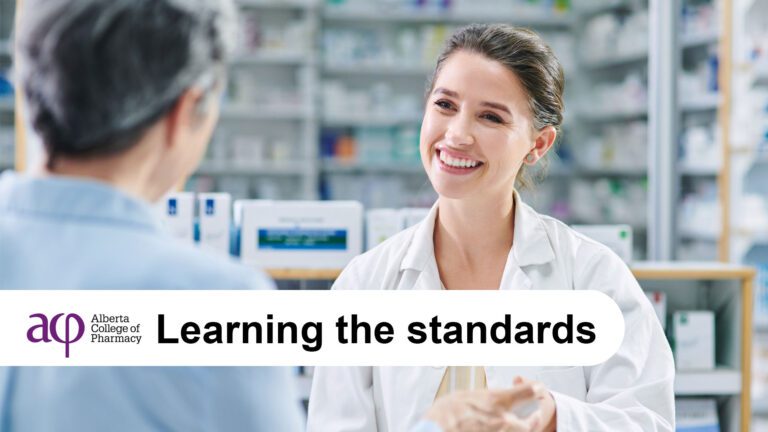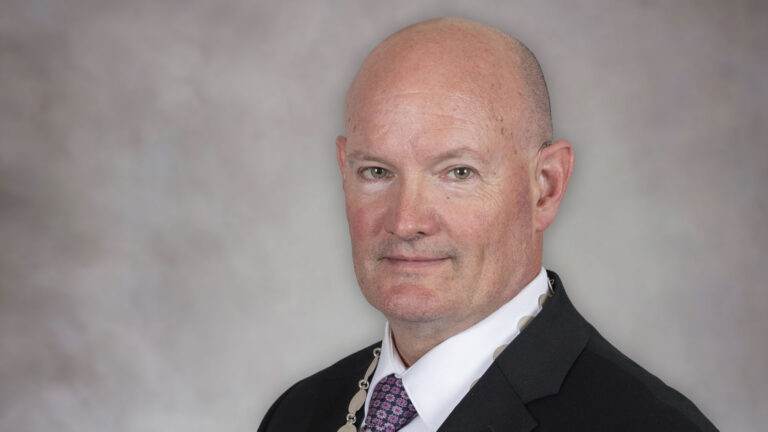
The following article was updated on August 27, 2024, to reflect the approval of the standards.
Professionalism and leadership are essential elements of the activities a regulated member performs as part of a pharmacy team. Because of this, the new Standards of Practice for Pharmacists and Pharmacy Technicians (SPPPT) have been designed so that the domain of Professionalism and Leadership encircles the rest of the domains, as nothing in pharmacy practice occurs outside the boundaries of professionalism. To be a regulated member is to be a professional. To be a regulated member is to be a leader.

The Professionalism and Leadership domain includes standards that support regulated members when supervising unregulated pharmacy employees who are involved in patient care as part of the pharmacy team.
One of the significant updates between the new SPPPT and the current standards is that the concepts of direct supervision and indirect supervision have been removed from the new standards. These have been replaced with the concept of identifying and communicating “critical steps” of any process that require an independent double check by a regulated member. In the new standards, an unregulated employee may complete certain steps of an activity to support patient care. However, each critical step requires an independent double check by a regulated member before the activity can proceed to the next step. An unregulated employee cannot take these activities from start to finish without these double checks taking place at each critical step.
“This change to the standards was included for practical purposes for pharmacy teams,” said Monty Stanowich, ACP’s Policy Lead and Compliance Officer. “Moving from the concepts of direct or indirect supervision to independent double checks of critical steps by regulated members ensures patient safety and quality. It supports an effective and efficient workflow for the pharmacy team.”
The new standards also incorporate already established Council policy and compounding standards to further clarify unregulated employees’ role in compounding drugs.
First, a regulated member cannot assign any component of the preparation of sterile compounds to unregulated employees. This was already a policy approved by Council and an expectation of ACP. It is now clearly stated in the new SPPPT.
Second, if you supervise an unregulated employee who assists in non-sterile compounding, you must ensure the unregulated employee has completed a training program and skills assessment as required by the Standards for Pharmacy Compounding of Non-sterile Preparations.
“Clarifying the roles of unregulated employees, specifically when it comes to compounding, addresses the variability in the level of training they have and the fact that they are not regulated,” said Monty. “Ultimately, the supervising regulated member is responsible for them. Unregulated employees have a limited role when supporting the provision of restricted activities. Their role in patient care is to support the regulated member. The new standards clearly indicate that, when supporting professional services, accountability and responsibility to the standards lie with the regulated member, not an unregulated employee.”
Watch for more information about the draft SPPPT and the draft Standards for the Operation of Licensed Pharmacies in future editions of The Link.




